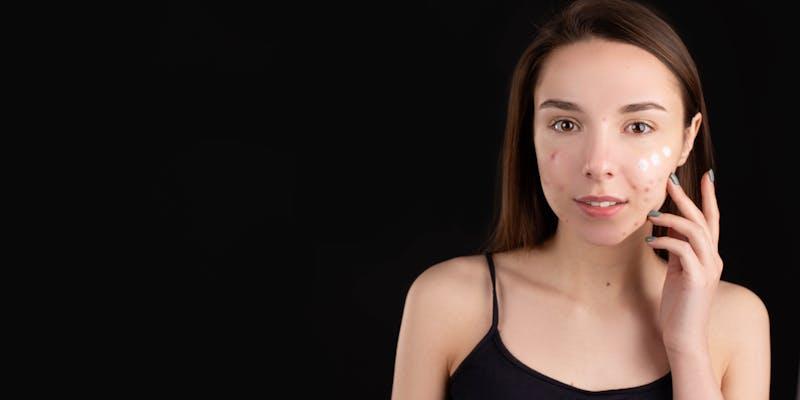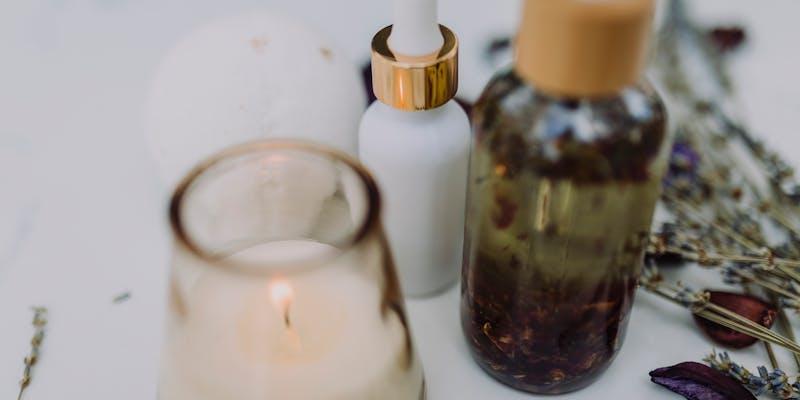Stop Making These 3 Skincare Mistakes if You Have Acne Prone Skin!
Mar 03, 2024 By Madison Evans
Sephum is an oily substance generated by the skin that combines with dead skin and viscous debris to obstruct pores and induce dehydrated skin acne. Bacteria, including P. acne, which forms pimples or cysts, can infect these obstructed pores. Particular at-home remedies can achieve the following results: regulation of sebum production, reducing inflammation, inhibiting bacteria, and preventing the potential for acne breakup.
Signs And Symptoms
A variety of symptoms are associated with different degrees of acne severity: An array of symptoms are associated with varying degrees of acne severity:
- Whiteheads
- Dark spots
- Blackheads
- Little red, sore bumps
- Acne scars
- Hard, painful lumps that are big under the skin
- Uncomfortable bumps filled with pus under the skin
- Facial, forehead, upper back, chest, and shoulder dehydrated skin acne and pimples are also observed.
Different Causes Of Acne

Acne begins with hypersensitivity of the sebaceous ducts in the skin. Bacteria, hormones, or inflammation can all contribute to developing dehydrated skin acne lesions on the skin. Additionally, acne may be induced by:
- Genetics: Heredity can greatly affect the individual's immunity to acne development.
- Triggering Medications: Anticonvulsants, lithium, and steroids are examples of such specific pharmaceuticals.
- Clothing Choice: Acne may be aggravated by garments that restrict motion, including shoulder cushions, backpacks, headbands, and underwire undergarments.
- Endocrine conditions: Endocrine problems, e.g., polycystic ovarian syndrome, can also lead to fluctuations in hormone levels, consequently leading to acne facet development.
- Smoking: A smoking association has been observed with Asperger's acne, an atypical form of acne that manifests after adolescence. There is currently no known cause of acne associated with vaping or inhaling electronic cigarettes.
Skincare Mistake That Worsens Acne
Harsh Exfoliation
Exfoliation rejuvenates skin. Due to debris and oil buildup, dead skin cells can impede veins if not removed routinely. This obstruction promotes acne, causing outbreaks and dark spots. Acne patients typically think exfoliating will make their skin perfect—still, one crucial point. Too much self-help might worsen the condition, causing inflammation and irritation.
Exfoliants are particularly important for runs of pimples and skin stains. Chemical exfoliants such as BHA and AHA are even more subtle forms of acids and are excellent substitutes for chemical peels. Chemical exfoliants might cleave the covalent bonds or not, but the main action is to remove the dead layer of the skin instead of roughing it. This simplifies removal.
Consult a dermatologist before using chemical exfoliants. They may recommend acne products for sensitive skin based on your skin type, concerns, and condition. Your dermatologist can recommend using emollients with chemical exfoliants as they don't always hydrate and protect the skin. Always remember that you want your skin properly and carefully treated. Using the appropriate techniques and the right acne products for sensitive skin, exfoliation can clean acne-prone skin and reveal a more refined, transparent complexion.
Taking Incorrect Amount Of Acne Medication
Common acne treatment mistakes include applying medication just to acne-afflicted areas. This mindset ignores the fact that acne has several causes. Beyond the visible imperfections, this cosmetic condition has major effects. A complete acne treatment includes treating the surrounding skin and the blemishes. This larger application targets outbreak-prone areas for a more complete treatment.
However, acne drug misuse is dangerous. Salicylic acid and benzoyl peroxide are often used to treat acne, but too much can dry the skin. Dry skin is annoying and might increase oil production. Your skin may produce extra oil to combat dryness clogging pores. The practice of this behavior makes perfect skin tougher to achieve. Balanced and informed use is essential. AC treatment guidelines must be reviewed and followed regularly.
Instead of dabbing the cream on pimples, apply it to the entire region per the label. Understanding what you use can also enhance things. Knowing how certain components work helps improve one's hygiene practice. Expert advice should also be stressed. If you're confused about how to use a product or if your acne doesn't improve after a while, contact a dermatologist.
Washing Your Face The Wrong Way
Acne-prone individuals are particularly vulnerable to skin injury resulting from improper facial cleansing. Choosing the wrong facial cleanser can cause further skin issues. Selecting a cleanser requires consideration of skin type. Hydrogen cosmetics suit oily skin. Exfoliant-containing cleansers can dry up dry skin, so avoid them.
Regularly cleanse with a soft towel and pat the skin dry properly. The skin condition may be affected immensely by the linger of a cleanser while subsequent acne products for sensitive skin are applied. The excessive washing of cleanser could lead to dried skin or might give oversensitive reactions. Additionally, avoid overwashing your face. Frequent washing might remove the skin's protective layers.
Good bacteria and microorganisms strengthen the skin's barrier. These microbes moisturize and prevent infections. Intense washing might disrupt the face's equilibrium. Finally, cleansing one's face before bed is crucial. Remove all makeup. Use lukewarm water and soft soap to shave instead of makeup wipes, which can clog pores.
Remedies To Keep Your Acne Skin Healthy

Argan Oil
Argan oil moisturizes very dry skin and reduces sebum production in sensitive skin because it is not comedogenic but still helps with acne facial treatment. Anti-inflammatory chemicals minimize skin inflammation and expedite acne scar repair, giving skin a more even tone. Argan kernel oil is recognized for its skin-balancing and emollient properties. Argan oil can treat acne naturally without closing pores and improve skin condition.
Jojoba Oil
Due to its resemblance to sebum, the skin's natural oil, the oil extracted from the jojoba shrub-like chemical–jojoba oil–has the potency to soothe skin irritation tremendously and helps by acting as an acne facial treatment. Its ingredients can inhibit the processes behind the inflammation and redness associated with acne. In the study done in 2012, the patients who used the clay masks that contained jojoba oil for six weeks noted that their acne severity had reduced by 54 %, which is a significant improvement. Jojoba oil is unlike other oils and may lead to extra skin benefits in connection with acne regimens.
Aloe Vera
The anti-inflammatory and antibacterial properties of aloe vera may help prevent and reduce acne and act as an acne facial treatment. In a 2021 study, an aloe vera soft mask significantly reduced acne lesions and dry skin patches. It treats acne scarring, speeds healing, and relaxes skin. Gentle but effective, aloe vera treats acne and restores skin health. Organic skincare enthusiasts benefit from it.







